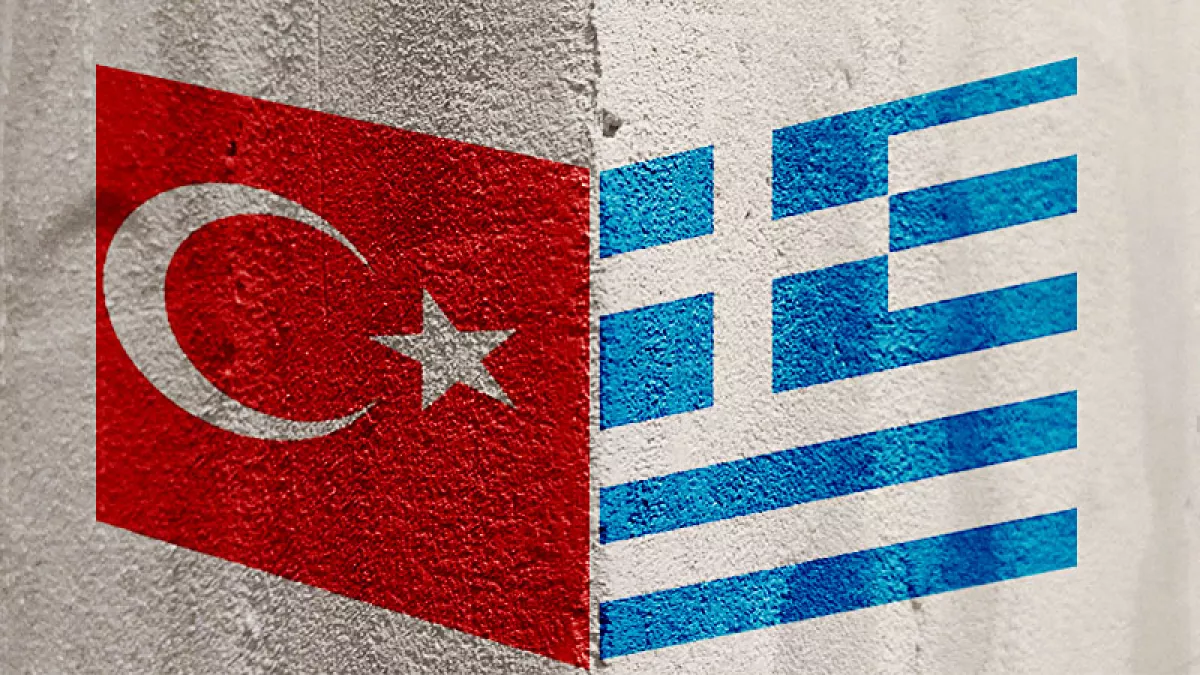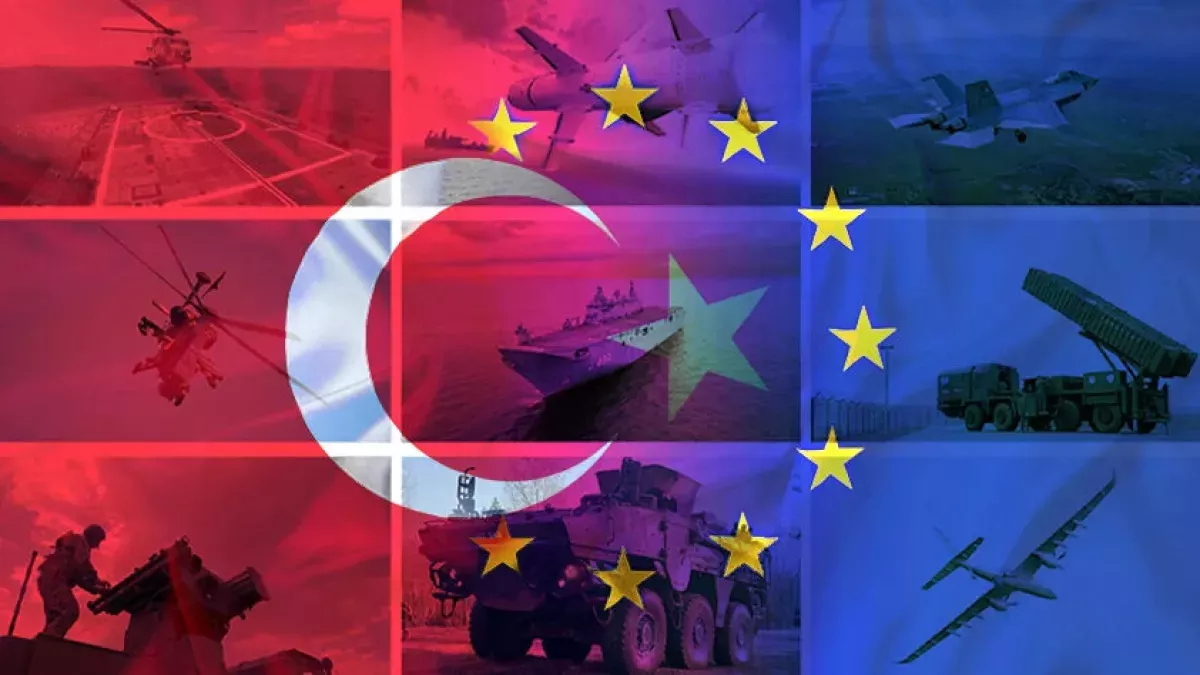SAFE in Athens’ crosshairs Greek phobia versus Turkish Logic
Recently, the European Commission officially added Türkiye’s application to join the Security Action for Europe (SAFE) mechanism to its agenda. The programme is aimed at strengthening Europe’s defence capabilities and increasing the EU’s resilience to external risks.
The procedure for joining SAFE consists of two stages: first, obtaining a recommendation from the Commission, and then approval by the Council. In Türkiye’s case, this process will require the unanimous consent of all European Union member states.
However, despite the support of most EU member states, the participation of the Republic of Türkiye in the programme remains in question due to Greece’s objections. Last week, Greek Prime Minister Kyriakos Mitsotakis once again stated that his country would not approve Ankara’s participation, citing ongoing disputes in the Aegean Sea and Türkiye’s “casus belli” resolution.
Unfortunately, the long-standing disagreements between Athens and Ankara over sovereignty, maritime and air boundaries, as well as rights to natural resources in the Aegean Sea, persist to this day. Greece unilaterally seeks to expand its territorial waters, while Türkiye views this intention as an obstacle to its maritime trade and access to international waters. Ankara insists that the eastern part of the sea should remain under its control, accusing Athens of violating its space. As a result, these disputes have repeatedly led to crises that have brought the two countries to the brink of military confrontation.

Nevertheless, we believe that Greece’s concerns over Türkiye’s participation in the EU defence programme are unfounded for several reasons.
First, the Republic of Türkiye is a NATO member state with the alliance’s second-largest army and a rapidly developing defence industry. Therefore, its involvement in the SAFE programme would be a significant advantage for the European Union. By showing obstinacy on this issue, Greece is effectively acting against the EU’s interests, which appears, to say the least, rather odd.
In essence, Athens is placing its own ambitions above the interests of the European Union — an approach that, frankly speaking, is selfish and clearly contradicts the principles of European unity and values. Greece would do well to take a cue from Finland and Sweden, both of which welcome Türkiye’s participation in the EU defence programme, even though they themselves once faced Ankara’s objections to their accession to the North Atlantic Alliance.
Second, Türkiye’s participation in SAFE is in no way directed against the interests of any particular country — least of all the Hellenic Republic. What arguments can Greece offer against Ankara, apart from loud political statements? The answer is obvious — none.
Moreover, Athens should not forget that it is Greece—not Türkiye—that has been militarising the Aegean islands. This is a fact the Greek authorities can hardly deny, as the international community is well aware that Ankara has consistently and firmly condemned Greece’s arms build-up policy, which was also encouraged by previous U.S. administrations.
In 2022, the Hellenic Republic conducted large-scale military exercises on the Aegean islands — an event that did not go unnoticed by the Turkish side. The Turkish authorities reasonably regarded Greece’s deployment of troops and weapons as a violation of international law and warned that they were prepared to raise the issue of the islands’ sovereignty.
“Türkiye is ready to raise the question of sovereignty over the Aegean islands if Greece does not cease its provocative actions,” said then–Foreign Minister Mevlüt Çavuşoğlu.
In effect, Greece resorted to an outright military provocation shortly after Athens and Ankara had resumed high-level dialogue in January 2021, aimed at easing tensions surrounding their border disputes in the Aegean Sea and the Eastern Mediterranean.
Furthermore, in September of this year, Greece conducted sudden military exercises near the Turkish border, thereby provoking Ankara to respond. The manoeuvres involved both ground forces and the navy, taking place in the border region of Evros and the waters of the Aegean Sea. However, the Republic of Türkiye did not fall for yet another provocation from the Greek side. Instead, having earlier completed the establishment of new protected maritime zones near the islands of Gökçeada and Finike, Ankara called on Athens to pursue cooperation.
Another fact worthy of particular attention is the recent statement by Greek Minister of National Defence Nikos Dendias, who announced the need for measures against Turkish Bayraktar TB2 and Bayraktar TB3 drones. He highlighted the importance of the newly created Department of Innovation and the anti-drone system Centauros, which, according to him, successfully shot down two UAVs and is planned for procurement by the air defence units of the Hellenic Army.
This clearly demonstrates that the Greek side suffers from an evident phobia regarding Türkiye in defence matters, as well as a persistent drive towards militarisation.

Returning to the issue of Türkiye’s participation in the SAFE Programme, it should be noted that Cyprus and France also share Greece’s objections — which is hardly surprising, given the openly unfriendly stance that both Paris and Nicosia have long maintained towards Ankara.
As a result, official Brussels has already confirmed that it has taken into account the concerns of EU member states while reviewing Türkiye’s application to join the SAFE mechanism. The final deadline for applications is November 30, by which time the European Union is expected to make a definitive decision on the matter.
It remains unclear whether Türkiye’s international standing and military strength will outweigh the alarmist attitude of Greece and its allies in Paris and Nicosia. However, should Brussels choose to yield to the countries advocating militarisation, the real loser will not be the Republic of Türkiye — but the European Union itself, which would thereby confirm its political incapacity to make strategically significant decisions.








